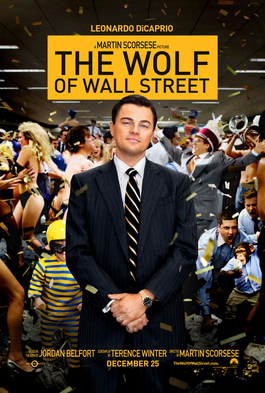Plot
In 1999, Seth Davis, a 19-year-old Queens College dropout, runs an unlicensed casino in his home near the campus, catering to college students. Although he earns a successful living, he is a disappointment to his father, Marty, a New York City federal judge. One night, his cousin Adam stops by the casino to play blackjack, bringing a rich associate named Greg Weinstein along with him. Greg recruits Seth to join J. T. Marlin, a brokerage firm based somewhere off the Long Island Expressway, promising him that he has the opportunity to get rich.
Arriving at J. T. Marlin, Seth attends a group interview and learns from Jim Young, one of the co-founders of the firm, what is expected of his work and also how he can become a millionaire, which he assures to the new applicants will happen within three years of their first day of employment at J. T. Marlin. The firm's techniques of selling are through cold calling investors to sell stock, and Seth joins as a stockbroker trainee, having to close 40 accounts and pass a Series 7 Exam to begin working independently. The brokers love to quote insider trader Gordon Gekko from Wall Street , seeing him as a role model. He is soon making a good living, as well as winning his father's approval and embarking on a romance with Abbie Halpert, a secretary and Greg's ex-girlfriend.
Gradually, he learns that J. T. Marlin is a chop shop brokerage firm that runs a "pump and dump", using its brokers to create artificial demand in the stock of expired or fake companies, and speculative penny stocks. When the firm is done pumping the stock, the firm founders sell and trade for legitimate stocks for record profits. However, the investors then have no one to sell their shares to in the market when the price of the stock plummets, causing them to lose their investment. The FBI agents investigating the firm decide to pursue Seth, hoping to make him their informant.
Seth passes his Series 7 Exam and becomes a broker. He then contacts Harry Reynard, the purchasing manager of a gourmet foods company. Although Harry is reluctant, he gives in after Seth lies that the stock is guaranteed to go up in value; Seth sells him 100 shares at $8 each. When the stock's value drops, Harry calls back to ask why the stock has done so poorly, only to have Seth persuade him to buy more worthless shares. The stock eventually tanks, costing Harry his savings and his family.
Feeling guilty for scamming Harry, Seth resolves to shut the firm down. Marty, discovering that J.T. Marlin was nothing more than a chop shop meant to scam gullible investors, then disowns him, accusing him of destroying peoples' lives. Seth investigates further, discovering that the firm's founders are already preparing to abandon J. T. Marlin, destroy the records, and cut ties with their employees to re-brand and start their scheme under a new name, leaving their victims to face a lengthy legal battle without much hope of recovering their money. Seth shows up at his father's office and tearfully explains that he shut down his casino and went along with a highly criminal line of work that he thought was legal to gain his family's approval. He then requests that his father help him on an IPO scheme to rob the firm of their money and bring them down, hoping that his actions, while illegal, will recover enough money to help J. T. Marlin's victims. Although Marty initially refuses due to the risk of losing his judgeship, he calls Seth the next day, reconciling with him and offering to help with the scheme.
Seth is eventually arrested by the FBI for the violation of 26 SEC and NASD regulations, and is brought into their custody along with his father, as the bureau had discovered their IPO scheme from a tape-recorded phone conversation. The FBI offer him federal immunity if he agrees to testify against J. T. Marlin once all the suspects are brought into court, and threaten to involve Marty in order to assure Seth's cooperation. Seth asserts that he will testify against the firm and provide strong evidence of their illegal practices only if his father is released. He and the agents come to an agreement on this, with Seth being kept overnight. After that, it is implied that he will be free to go as the FBI will proceed to raid the building and prosecute everybody else.
Seth returns to work the next day and goes along with the FBI's instructions to make copies of investment files onto a floppy disk to use as evidence. Before leaving, Seth attempts to get Harry's money back. He lies to Michael Brantley, the company's founder, by explaining that the firm can lose a lot of money by refusing to continue to do business with Harry Reynard, who Seth makes out to be an important prospect at a make-or-break point. Brantley agrees to proceed, offering him shares of the next IPO, with a caveat that he cannot sell the shares until the firm has sold off theirs. In order to sell the shares behind Michael's back, Seth needs a sell ticket signed by a senior broker, something that his direct supervisor, Greg, has explicitly said that he would never do. He seeks a signing from Chris Varick, explaining that he may as well "do one thing right" in helping a severely hit investor make his money back, now that the firm will be raided and, soon enough, there will be no future in continuing business at J. T. Marlin. Chris reluctantly agrees, and proceeds to escape the building in an attempt to flee federal enforcement. Seth walks out to his car, deciding what to do with his life now that his ties with J. T. Marlin are finished. As he departs in his car, several FBI cars, buses, and tow trucks enter the parking lot, with agents storming out ready to raid the building.













